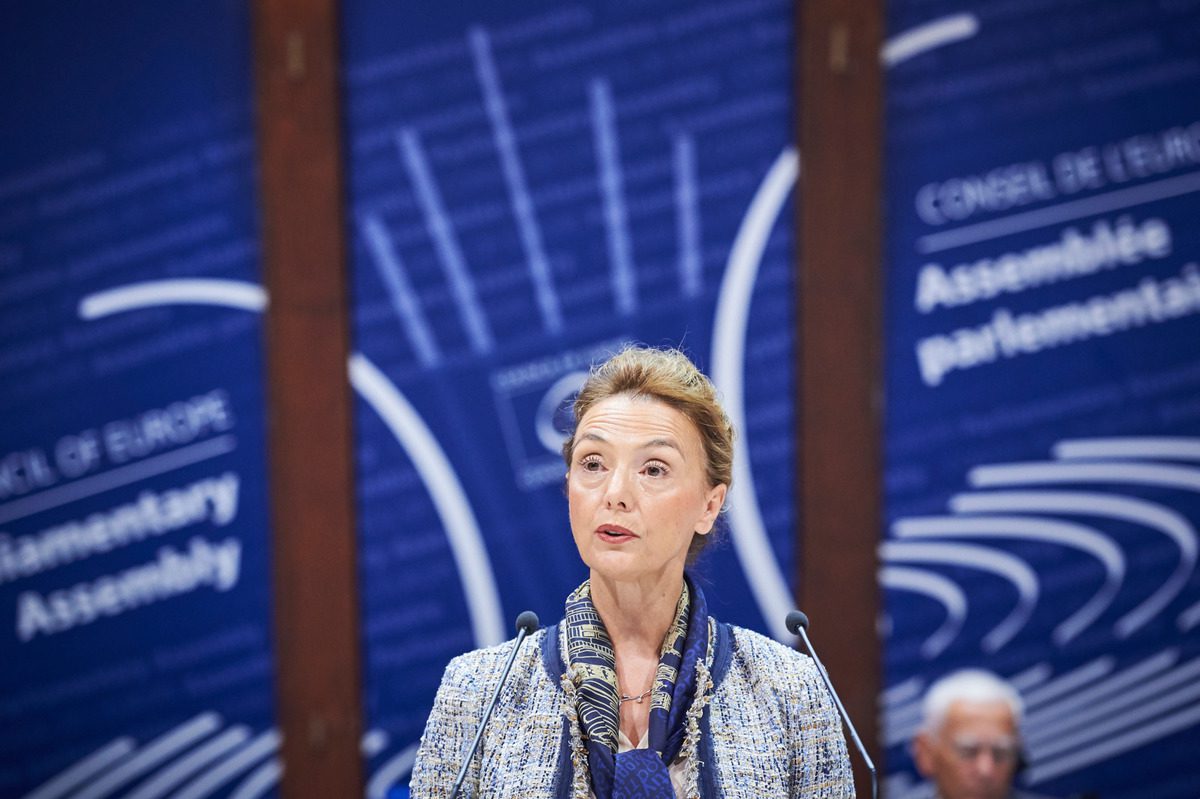President Tzitzikostas at local leaders conference in Mannheim: “Cities and regions need direct access to EU funds to turn green words into green actions”
The city of Mannheim virtually welcomed the 9th European Conference on Sustainable Cities & Towns organized by ICLEI with the support of EU institutions, including the European Committee of the Regions (CoR). Hosted by the Mayor of Mannheim and CoR member Peter Kurz, local leaders gave support to the Manheim Message, a collective call for cities and regions to be key partners in the EU’s path towards climate-neutrality and a joint commitment to develop Local Green Deals.
The Mannheim 2020 conference was held virtually from 30 September to 2 October in a difficult social and economic context due to the COVID-19. Five of CoR’s prominent members took part, including President Apostolos Tzitzikostas, calling for cities and regions to be placed at the heart of the design and implementation of the EU’s recovery plans, ensuring every territory becomes more sustainable, inclusive, and resilient.
Apostolos Tzitzikostas, CoR President and Governor of the Region of Central Macedonia intervened saying: “To reach climate neutrality by 2050 and deliver a sustainable future for our citizens, regions, and cities need to be part of the development, delivery, and monitoring of EU recovery policies. As local and regional governments, we need to take ownership of the Green Deal, shape our own national investment and climate plans, and have direct access to EU funds to make the Green Deal tangible in our communities. We must turn nice green words into real green action. If the Green Deal is not built and delivered with our cities and regions, it will not happen at all”.
The CoR member and Mannheim Lord mayor Peter Kurz (DE/PES) declared: “The Mannheim Message underlines how important cities and local authorities are as key actors for Europe’s future. We are committed to Local Green Deals designed in cooperation with our citizens and key stakeholders. We aim to build the strong foundations for the implementation of the Green Deal in Europe and to accelerate the transformation to carbon-neutral, sustainable, and inclusive societies. However, the Mannheim Message also stresses that we do not want to be merely implementation partners for programmes, measures, and regulations. We want to be truly involved in co-creating Europe’s future for the well-being of our citizens today and for future generations”.
The Mayor of Seville, Juan Espadas (ES/PES), Chair of the CoR’s ENVE commission and Green Deal Going Local Working Group, congratulated the Polish city of Katowice for winning the 2020 Transformative Action Award. Mayor Espadas said: “Our cities and regions need to undergo a deep economic and societal transformation to address the current COVID-19 crisis, but also the upcoming climate and biodiversity crises. A Europe made by smart revolutionary actions that have the capacity of changing the face of our territories, restoring ecosystems, contrasting climate change, and moving towards healthier and more inclusive societies is indeed possible. Congratulations to Katowice that through its action aims to increase civic participation and to encourage residents to help make the city more sustainable.”
Rafał Trzaskowski (PL/EPP), Mayor of Warsaw, said: “The Climate Pact is, first of all, a bottom-up process in which local communities make public their commitment to the European climate neutrality by 2050. But it is also a catalyst for social innovation, enabling mutual inspiration on the methods, ways, and tools that are used to transform our societies towards a climate-neutral Europe as quickly and equitably as possible. Cities across Europe desperately look forward to some new, bold financing schemes. Already a year ago, Warsaw, together with the other signatories of the Pact of Free Cities, called for more European funds to be directly accessible for cities. Such funds would boost investment in new, sustainable transport infrastructure, renewable sources of energy, greenery, deep retrofit of buildings, and power-saving measures.”
Roby Biwer (LU/PES), Member of the Bettembourg Municipal Council, Head of the delegation of Luxembourg at the European Committee of the Regions took the floor at the session ‘Designing Just Green Cities through Urban Greening Plans’. The CoR rapporteur on various biodiversity opinions declared: “One of the key learnings from COVID-19 is that cities have to rethink their urban development plans. There is a higher expectation by the bulk of the population to breathe a better air and get greener areas in their neighbourhoods. We need to integrate nature and biodiversity in our lives to build a better future. The European Urban Greening Plans have the potential to bring nature back to cities and reward community action to restore and protect biodiversity in urban and peri-urban areas, by also allowing cities to exchange planning tools. Let’s be the leaders of biodiversity conservation, not victims of it.”
Additional information
Contact: [email protected] / +32 (0) 470 88 10 37












